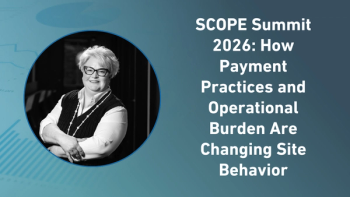
Use of Televisits in Studies and Related PV Concerns
While televisits can address many medical concerns, one frequent reservation expressed by healthcare professionals is that patients during these televisits tend to present too narrow a picture of their clinical condition-resulting in non-comprehensive medical assessments.
The COVID-19 pandemic has triggered a surge of attention and tremendous increase of use of televisits (also called tele-consultation or, more technically, real-time synchronous telehealth) over a very short period of time. As an example, in France the traditional weekly frequency of televisits observed before March 2020 has been multiplied by 50 in a couple of weeks, and many physicians usually reluctant with this virtual consultation eventually adopted it, at least transitorily. Televisits are now becoming strongly considered for the management of studies as an essential alternative to on-site face-to-face visits during the pandemic, but also as a new approach for the development of virtual decentralized trials or hybrid patient follow-up within a study.
The EUCROF PharmacoVigilance Working Group discussed the potential impact of televisits on pharmacovigilance (PV) processes and related guidance to be given to all stakeholders.
The main concerns identified relate to the qualitative and quantitative impact of televisits on the ability of treating physicians to detect some adverse events (AEs) and thus might compromise the safety of patients.
While televisits can address many medical concerns, one frequent reservation expressed by healthcare professionals, especially in primary care, is that patients during these televisits tend to present a too narrow picture of their clinical condition, resulting in non-comprehensive and risky medical assessments that in routine practice, physicians and patients are not familiar with. Furthermore, subtle, alerting signs spontaneously arising from the simple observation of the patient during the consultation are unlikely to be detected through a videoconference or telephone visit, given technology limitations and respective behaviors during such remote consultations. Examples include: general attitude of the patients, their posture, the way they spontaneously walk, stand up, or move, their skin coloration, thoracic appearance during breathing, routine lymph node palpation, etc. This may impair early detection of some AEs.
Therefore, we recommend pharmacovigilance and medical teams:
- Perform a risk-analysis on what signs and symptoms the physician is likely to miss given the specificities of televisits.
- Based on RMP, SmPC, product characteristics and/or drug class safety profile, combined with type of medical practice, identify safety concerns of interest and is- sue appropriate recommendations for a targeted screening for these safety concerns during the televisit.
- Similar to the procedure followed for COVID-19 televisits, standardized questions/ requirements/examples can be listed on a checklist form/examination protocol.
Xavier Fournie is an Executive Medical Director at ICON. Zurab Koberidze is a Director at FGK. Nicolas Tsiakkas is a Scientific Director at Medwork. Marco Anelli, MD is the Data, Information, Knowledge & Intelligence Group Leader at ProductLife Group.
Newsletter
Stay current in clinical research with Applied Clinical Trials, providing expert insights, regulatory updates, and practical strategies for successful clinical trial design and execution.



